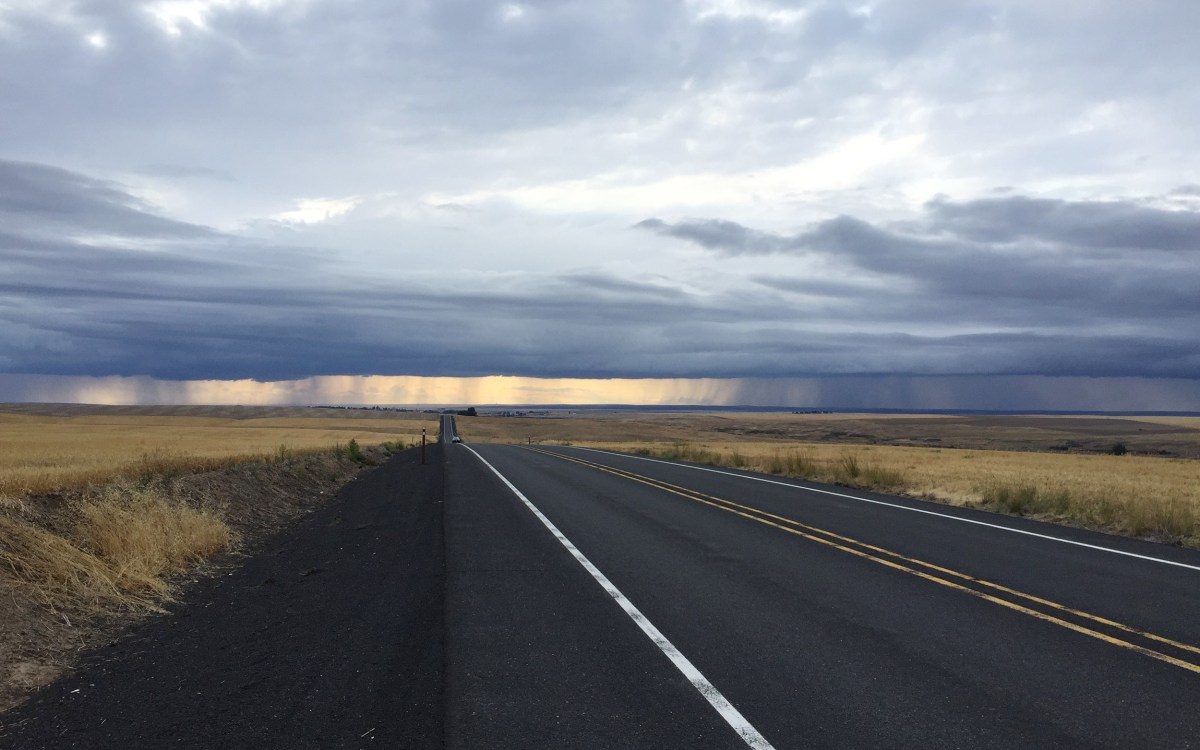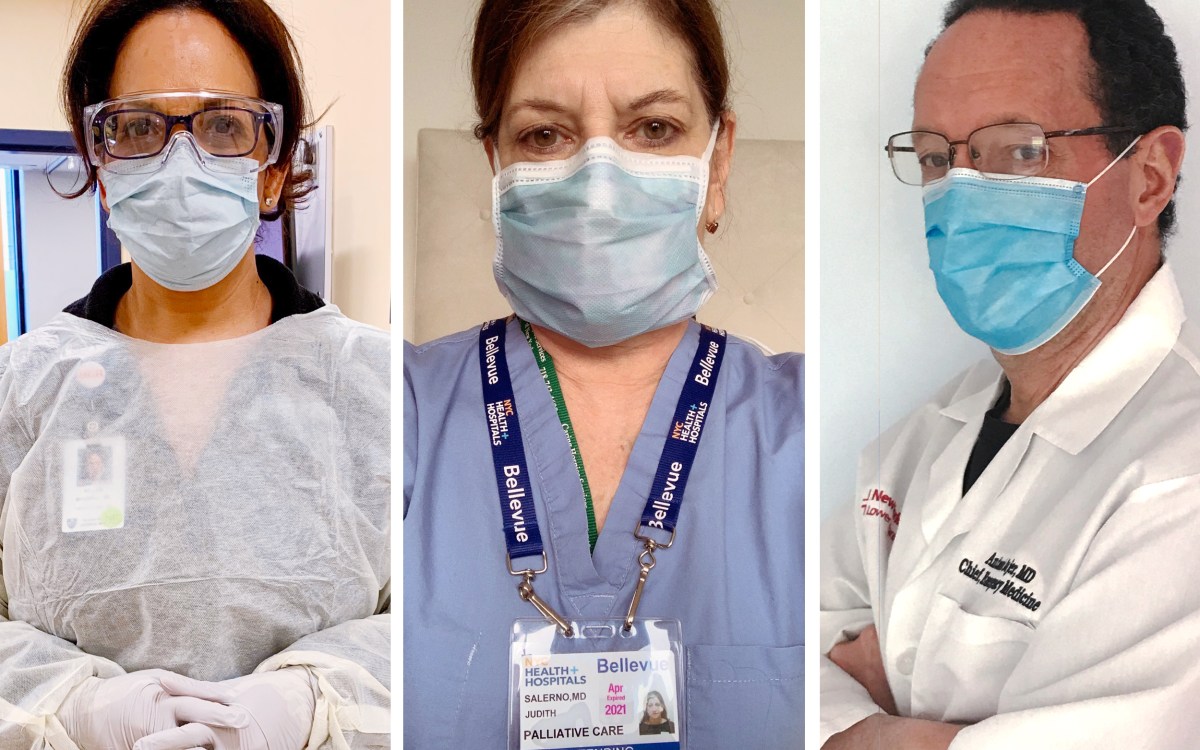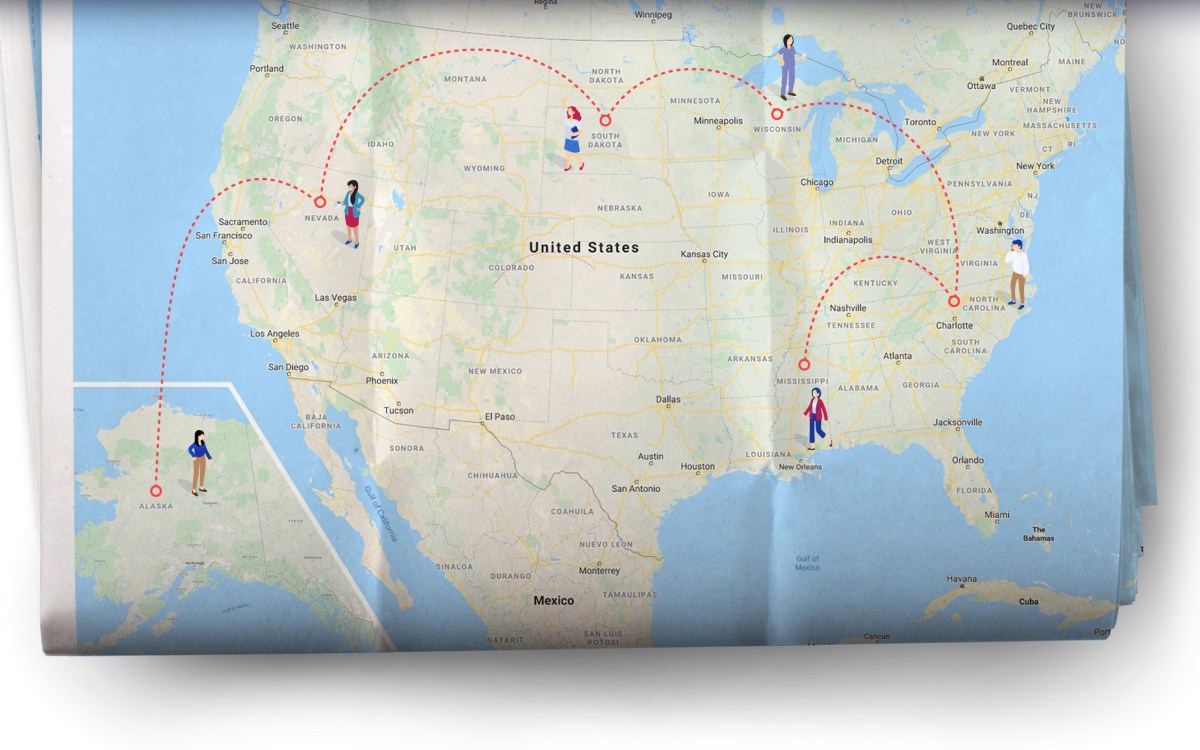Taking action to help others in tough times
Alumni across the U.S. mobilize to solve problems in wake of COVID-19
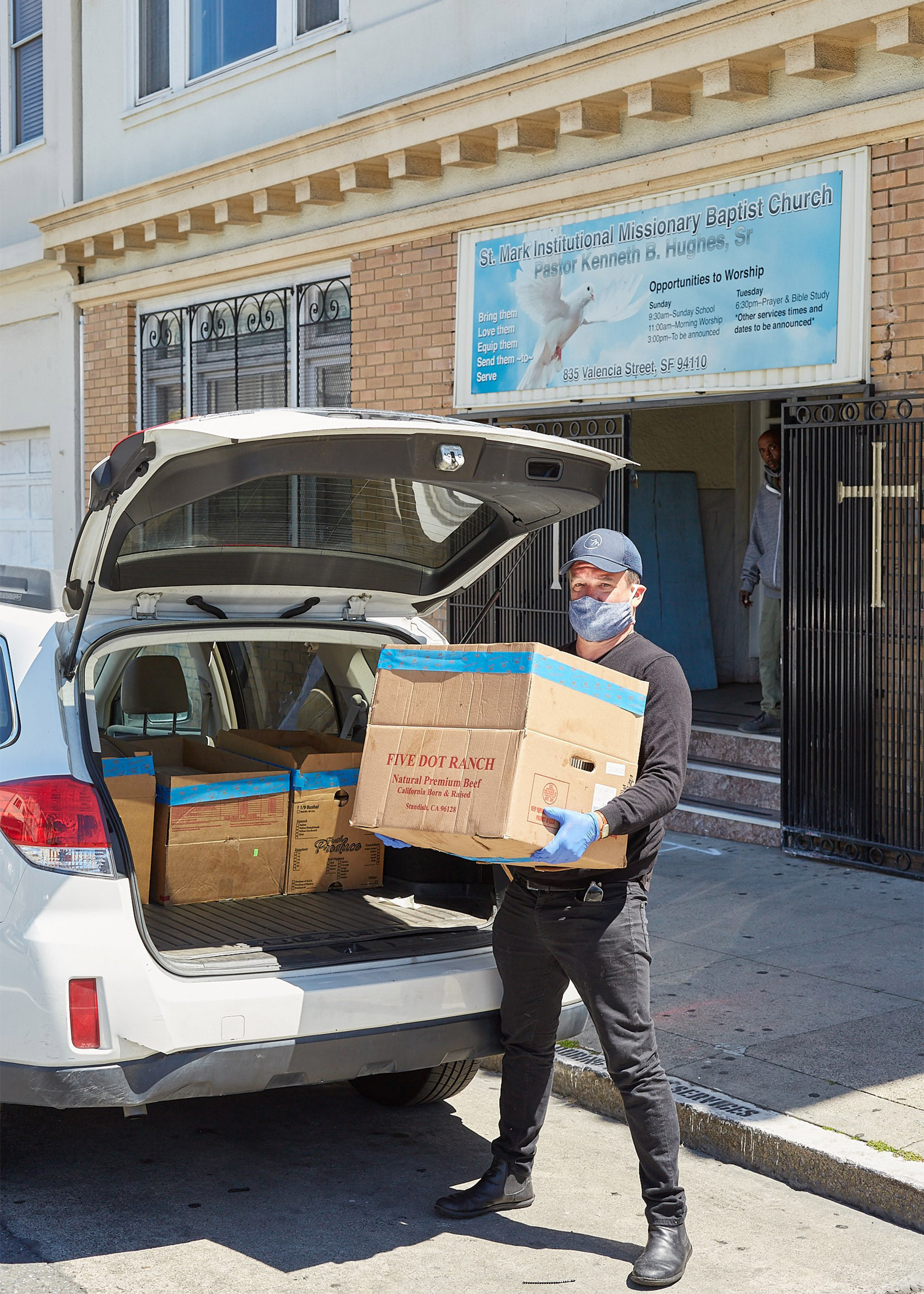
Restaurants and community organizations partner to deliver 48,000 meals per week in San Francisco through SF New Deal, an organization co-created by Jacob Bindman ’19.
Photo by Molly DeCoudreaux
As the COVID-19 pandemic has escalated, Harvard alumni have acted swiftly, often in creative ways, to help those in need, pitching in with everything from participating in research efforts and volunteering in hospitals to spearheading public health campaigns and donating personal protective equipment (PPE). The Gazette spoke to three — Ashri Anurudran ’19, Raj Kapoor, M.B.A. ’96, and Jacob Bindman ’19 — who each called upon Harvard friends and mentors to help them tackle issues worsened by the crisis, including domestic violence, clinical trial recruitment, and food insecurity.
Providing a lifeline when home is unsafe
Ashri Anurudran ’19
COVID-19 Task Force on Domestic Violence
Ashri Anurudran was finishing coursework for her master’s degree in public health at the University of Cambridge when the pandemic hit. On her flight home to Houston, the crew handed passengers forms from the CDC asking where they had traveled, whether they had symptoms, and where they were planning to quarantine. Anurudran, a violence-prevention advocate, was struck by the absence of one question: “Why doesn’t anyone ask me if I’m going home to a safe place?” she wondered.
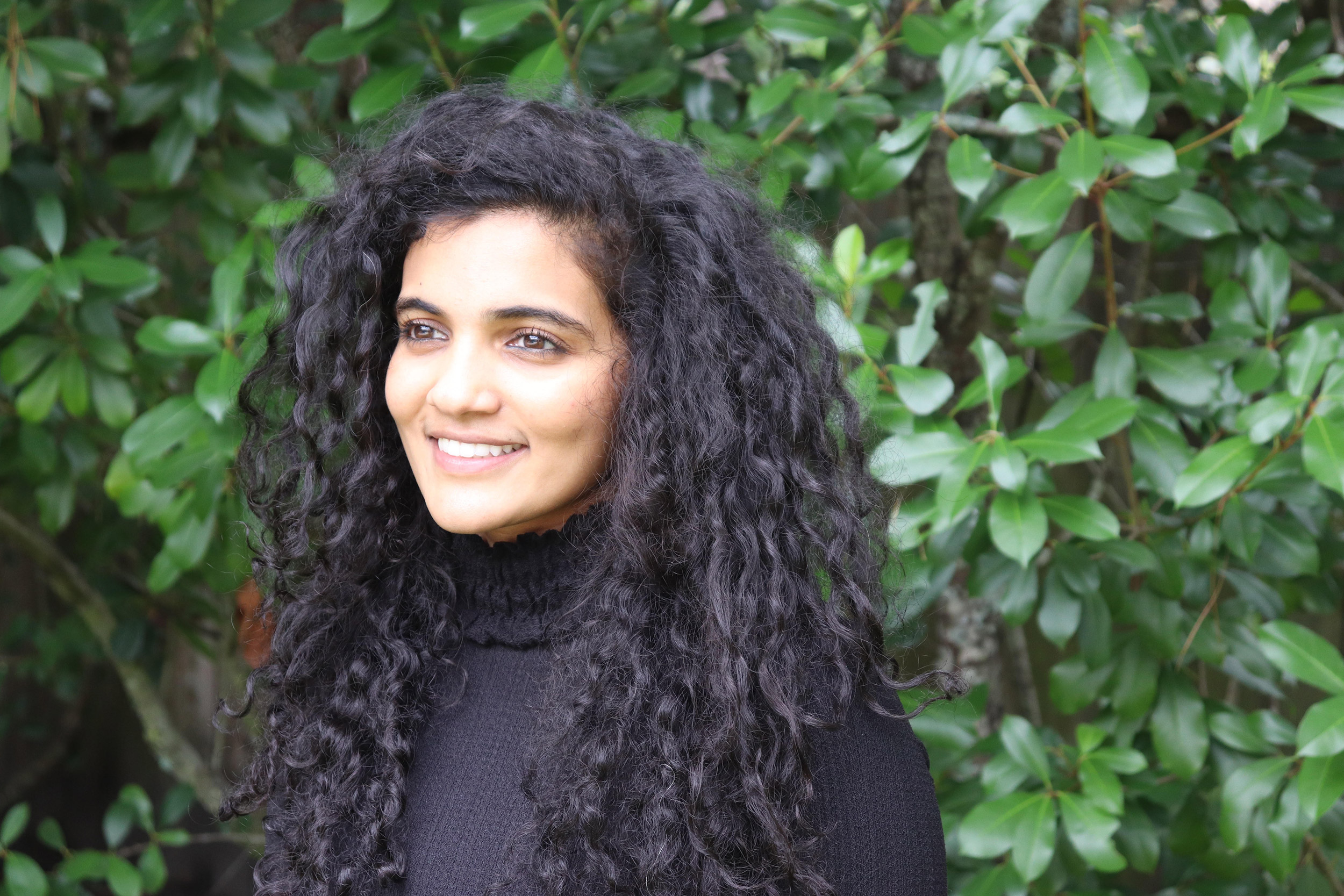
The next day, she began looking up resources for those experiencing domestic violence during lockdown, and found that it wasn’t easy to access information. This motivated Anurudran, a former Cheng Fellow at Harvard Kennedy School’s Social Innovation + Change Initiative, to form the COVID-19 Task Force on Domestic Violence, a team of students and activists who created an internet database of resources and research for those in unsafe homes and those who want to help.
“I realized that staying at home [during the lockdown] provides worse outcomes for people experiencing domestic violence,” Anurudran said. “I wanted to find a way to help as many of these resilient survivors — and their allies — as possible.”
Many survivors of domestic violence face a harrowing choice: either quarantine in a dangerous home, or leave and increase the risk of infection. Making matters worse, most public health guidance does not address their situation, and they often encounter obstacles to getting help. The task force aims to make information freely accessible to educate and connect survivors, health care providers, teachers, and supporters, as well as promote collaboration across shelters and community organizations.
To get the project off the ground, Anurudran reached out to friends, including Katherine Harrison ’19, who built the website, along with faculty mentors Thomas Burke, associate professor at Harvard Medical School, Vandana Sharma, project director for the External Evaluation of the Disasters and Emergencies Preparedness Programme at the Harvard Humanitarian Initiative, and Jeffrey Miron, director of undergraduate studies in the Department of Economics, to identify information gaps and lead virtual seminars.
Many survivors of domestic violence face a harrowing choice: either quarantine in a dangerous home, or leave and increase the risk of infection.
The task force analyzed the data they were gathering from participating shelters and police reports and discovered that while 911 emergency calls were decreasing across many cities, those related to domestic violence were increasing. Anurudran and her growing team of 80 members helped connect shelters across the U.S. so that organizations in various parts of the country could share successful strategies. The task force also got involved in policy and advocacy efforts, such as placing informational flyers in grocery stores and pharmacies, partnering with food-distribution programs to discreetly provide resources in grocery packages, and submitting op-eds to local newspapers.
“The roots of domestic and gender-based violence are the same across all contexts, but we have the tools to prevent and respond to it everywhere,” she said.
Anurudran has been passionate about violence prevention since childhood, moved by her parents’ experiences surviving a civil war in Sri Lanka before immigrating to the U.S. At Harvard College, she studied economics and global health while working at the Office of Sexual Assault Prevention and Response. She also founded Empower to Eliminate, an organization that works with local NGOs in Kisumu, Kenya, to develop and implement a gender-based violence prevention program for high-risk children.
Anurudran hopes that more people will come to recognize the warning signs of domestic violence and know what to do when they see them. “Reaching out in an unsafe way can escalate an unsafe situation and make it worse,” she said. “As we think about responsible allyship, we need to educate people in exactly how and when to help survivors. Open-minded communication is key; letting them know you’re always there for them, no matter what.”
Connecting volunteers with clinical trials
Raj Kapoor, M.B.A. ’96
World Without COVID
After Raj Kapoor contracted COVID-19 in March, he shared his diagnosis on social media to help combat stigma and provide emotional support for others dealing with the virus. He wanted to get involved in research efforts, but was frustrated by a lack of clear information about how to sign up for clinical trials, a common issue that hampers efforts to develop effective treatments.
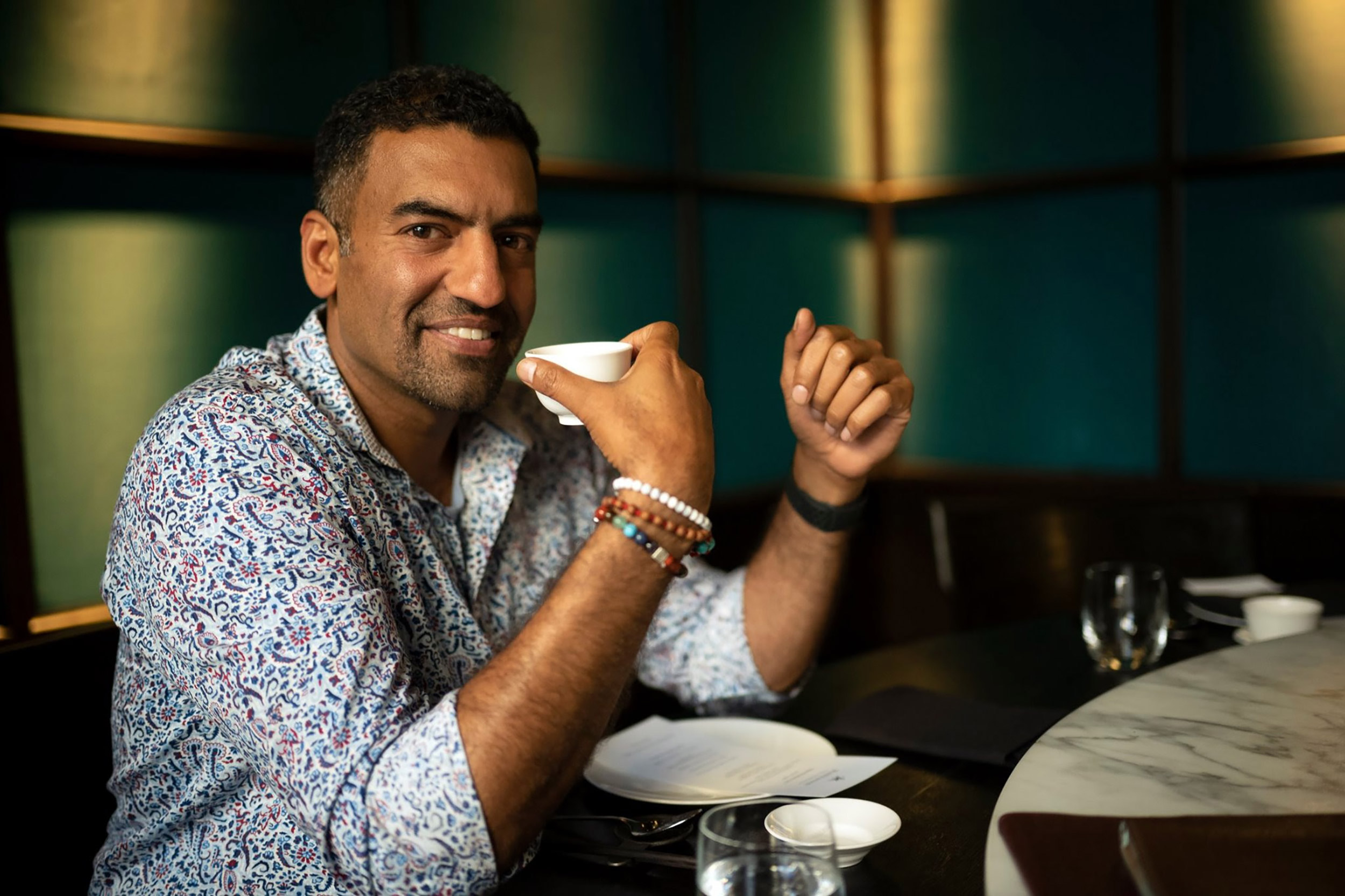
Kapoor decided to create a registry that would match people to local trials for COVID-19. He envisioned a free service that would connect volunteers — both those who have recovered from the virus and those who have not been exposed to it — with ways to participate in research near their homes, without stigma.
As chief strategy officer for Lyft, Kapoor was eager to translate strategies from the business world to streamline public health efforts. “Persistency and speed are two things I’ve learned from the tech ecosystem,” he said. “It’s easy to give up because of bureaucracy moving too slowly, but if you can impress upon others a sense of urgency, then things will happen.”
A Harvard Business School classmate, Jennifer Fonstad, M.B.A. ’96, introduced him to Clara Health, a startup that was already making connections between clinical trials and volunteers for a range of diseases. Two weeks later, they launched World Without COVID, a free public health service that matches volunteers with opportunities to participate in vaccine and treatment trials, as well as antibody testing and blood plasma donations across the U.S. and internationally.
Kapoor’s wife, Lydia, a physician, had also recovered from COVID-19 and wanted to help find ways to shorten delays in the research community — especially surrounding blood plasma donations — so that they could both give. As they investigated further, they found that around 80 percent of clinical research was slowed down by inadequate patient recruitment. “For patients, it can be such a complicated process,” said Kapoor. “We’re trying to accelerate the end of the pandemic by speeding up clinical trials on testing, treatments, and vaccines.”
Since launching World Without COVID this spring, their work has grown from connecting patients to a handful of trials to more than 1,400 trials and counting. With so many people eager to help, Kapoor emphasized that medical researchers need a wide variety of volunteers — not just those who have recovered from COVID-19 — and encouraged the Harvard community to sign up for the registry. “If we can fill these trials up faster, we can make an impact,” he said.
Nourishing community
Jacob Bindman ’19
SF New Deal
As the pandemic shuttered restaurants across San Francisco and left food-insecure residents even more vulnerable, Jacob Bindman teamed up with local bakery owner Lenore Estrada to create SF New Deal, an organization that puts restaurants together with community organizations to provide free meals throughout the city. On their first day, they made and delivered 100 sandwiches. Since then, they have scaled up in a big way, collaborating with over 20 restaurants to deliver 48,000 meals per week to communities in need.
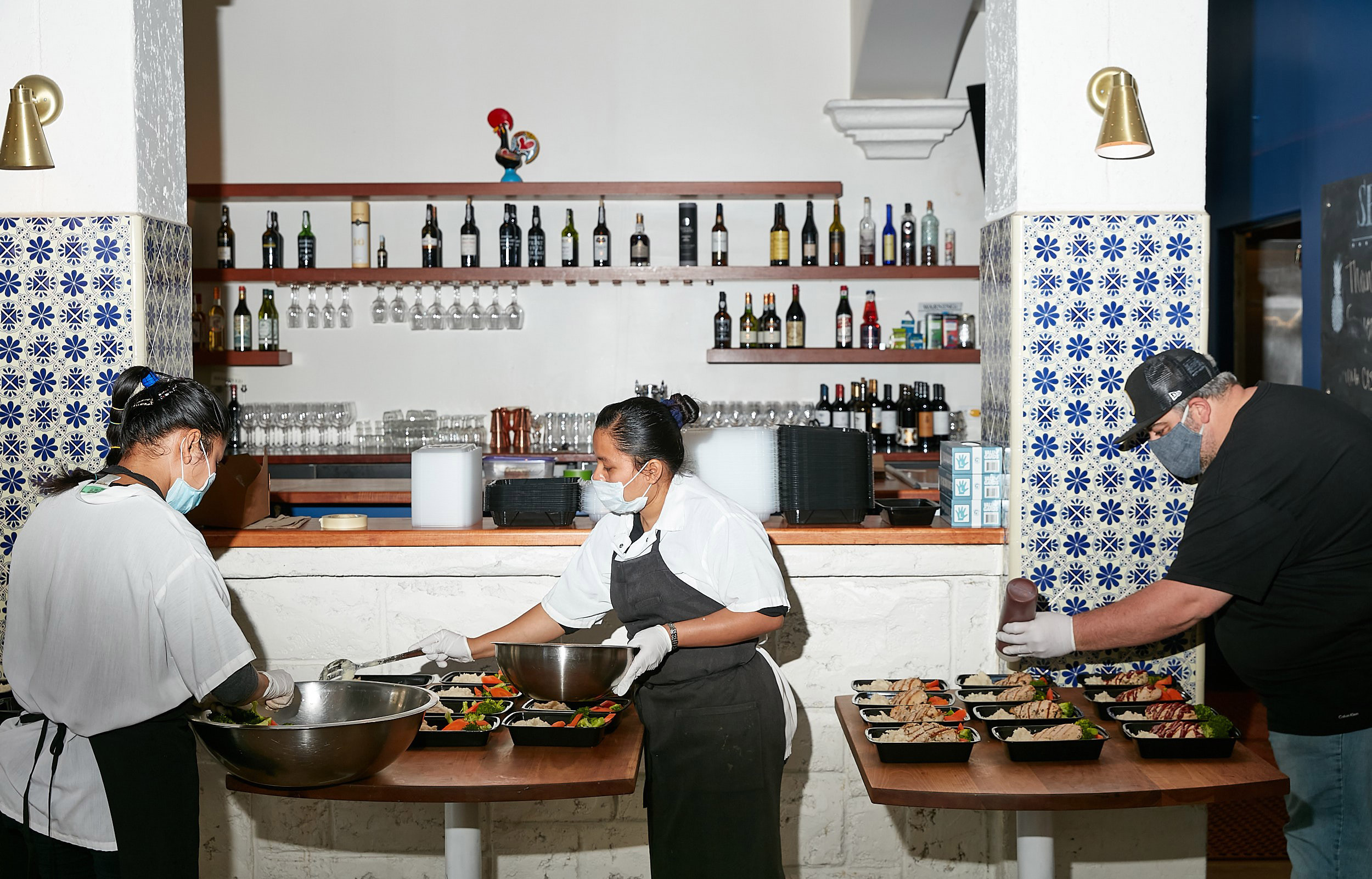
Photo by Molly DeCoudreaux
From the beginning, SF New Deal’s dual focus has been to support restaurants economically while partnering with community organizations such as Citywide Case Management, which offers mental health resources to communities in need, and the San Francisco African American Faith-Based Coalition, a network of 21 Black churches across the city. Bindman said SF New Deal serves as a centralized resource to connect restaurants with 18 groups providing food support for San Francisco residents and to foster these relationships for years to come.
The expertise and inspiration of community leaders were essential in getting the project off the ground. Bindman said individuals such as Mindy Oppenheim of Citywide and Veronica Shepard of the African American Faith-Based Coalition “demonstrate to me in so many ways how to build the community you want to be a part of … with open communication and trust.”
Bindman, who studied architecture and applied math at Harvard, had worked in the food service industry and was inspired to research Harvard’s dining program as an undergraduate. This experience helped him in his new role as service operations lead for SF New Deal.
As he built out roles across the organization, Bindman reached out to two friends based in San Francisco — Eloi Le Roux ’17, who helps with technical operations, and Jeremy Welborn ’18, who works directly with restaurant owners — as well as Molly Leavens ’19, who works remotely from Utah as a community captain, calling restaurants every week to collect feedback.
Bindman said that his goal now is to bring together business owners, restaurants, community organizations, and city leaders to work out a long-term solution for food insecurity in the city. “The issues we’re working to address right now have long been happening across San Francisco and across the United States,” he said. “Seeing the community come together to find a solution has been incredibly inspiring.”
[gz_banner_50states /]



